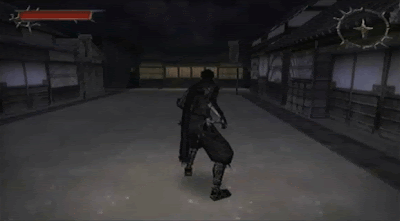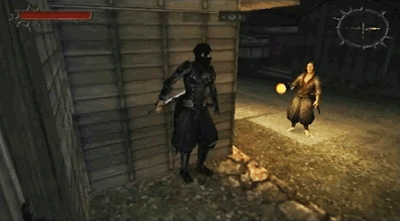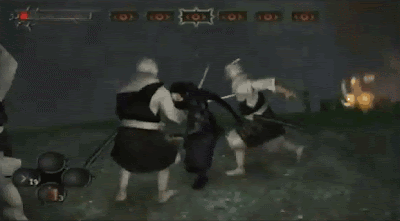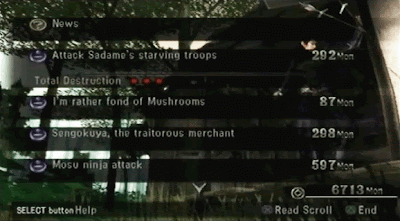This post originally appeared on Matt Weise's blog Outside Your Heaven.
I am embarrassed to say I was unaware of Shinobido's existence until a few months ago, when the design lead of Fallout: New Vegas recommended it to me over drinks at Austin GDC. I was mildly shocked to learn it was by Acquire, the makers of the original Tenchu, and that it continued that game's more open-world approach to stealth that the later Tenchu sequels abandoned.
I had no idea Acquire had lost the Tenchu license, and that after they lost it they created Shinobido as its spiritual successor, combining its open level design with the choice-driven narrative structure they pioneered in Way of the Samurai, their other main series. Given my love of Tenchu, Way of the Samurai, and open-world experiments in general I was flabbergasted this game somehow got by me... until I discovered it had been localized for PAL regions only. Apparently it was too experimental for us yanks.
Shinobido looks a bit like Tenchu 3 at first glance, only unlike From Software's PS2 sequel it isn't just a streamlined version of Tenchu 1 with prettier graphics. It's a crazy, ambitious experiment that feels more like a "ninja simulator" than a game. It's over-arching structure reminds me a lot of Deus Ex (though it obviously comes from Way of the Samurai) with three opposing warlords all seeking your service in their quest for political power.
Each "phase" of the game involves a series of opposing job offers, only one of which you can take. What really makes this interesting is how elegantly the high level politics connect with the low level gameplay. You can accept missions against lords who like you, and they will be none the wiser if you are clever enough not to get caught. This is, in fact, how a faction system should work: as a matter of NPC perception, not global switches.
Failing a mission does not mean death in Shinobido. I means humiliation, the loss of reputation with a lord. In fact, you can only "die" during certain boss fights, something which the game warns you about beforehand and gives you the option to opt out if you aren't confident you will survive. Although you can cheat this system with save/loading, it is extremely tedious to do so, making Shinobido a game about weighing the political consequences of every moment.
You have to be very good at being silent in order to navigate the politics effectively, and the way the game brutally punishes any form of grandstanding reinforces this. Taking on multiple opponents, martial arts movie-style, is quite impossible. A group of startled guards will simply rush you, screaming into the night for anyone in earshot to help. Soon the whole damn neighborhood is awake, your lord will be furious, and you feel like the worst ninja ever.
To me this is a much cleaner, more interesting variation on the faction politics of Deus Ex 2, in which faction decisions didn't seem to effect the core gameplay as directly or as obviously. I love the idea that a faction is a living organism with persistent features that change based on your story decisions, and Shinobido deserves credit for showcasing this idea well, even if it doesn't explore the idea fully.
Physics are a big part of Shinobido's gameplay, which is usual for a Japanese game, and is the source of some of its flaws. In a game with consequences this steep, the unpredictability of collision at times can be very frustrating, though it does contribute to general sense that being a properly elegant ninja takes real dedication (the animation for when you trip over a dead body, for example, seems designed to humiliate).














